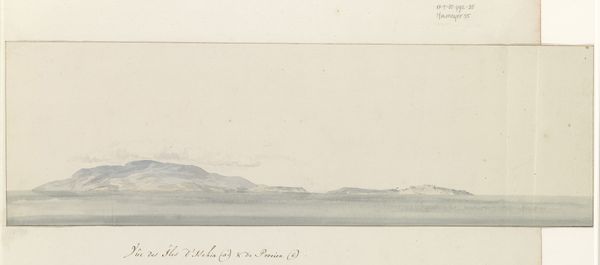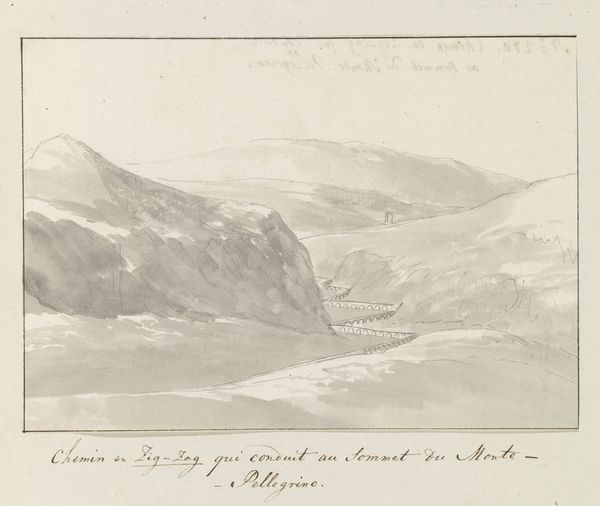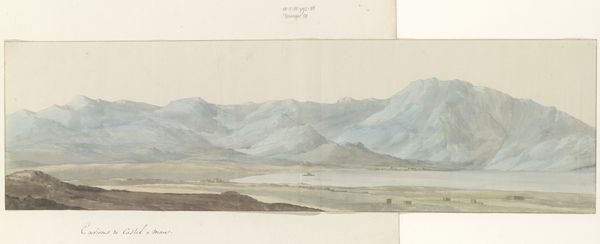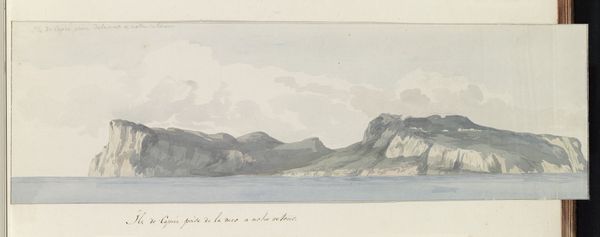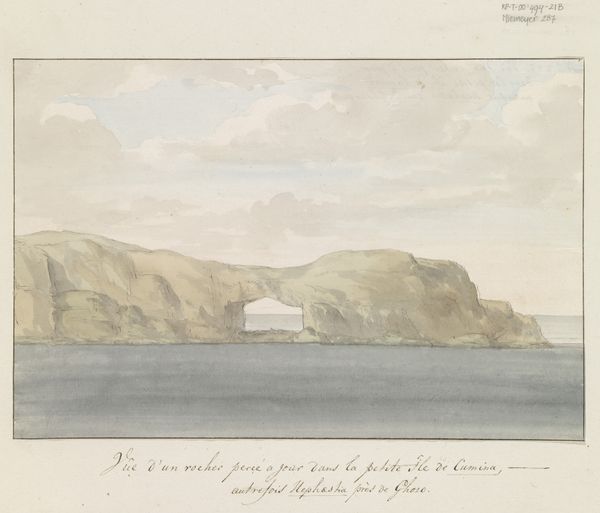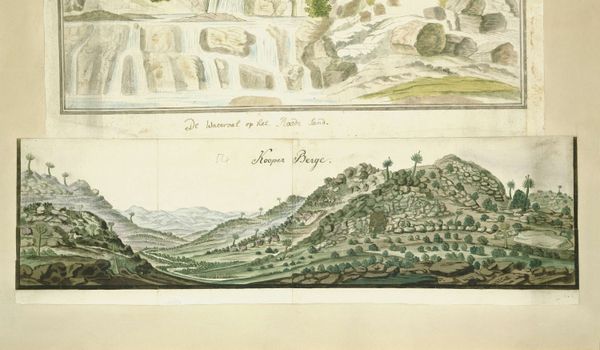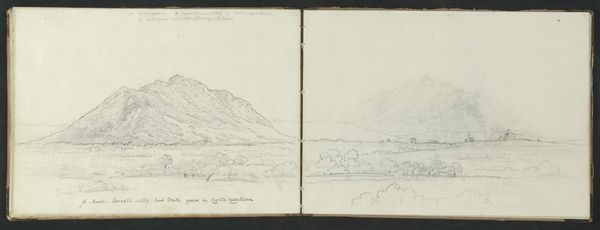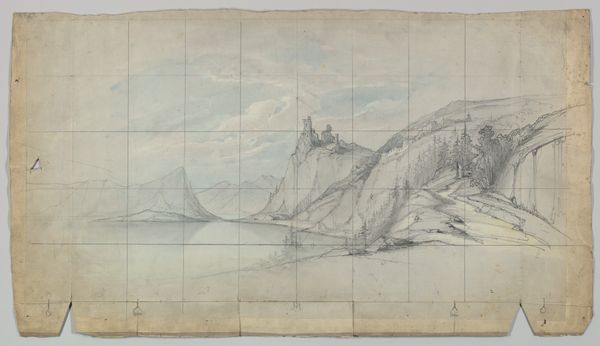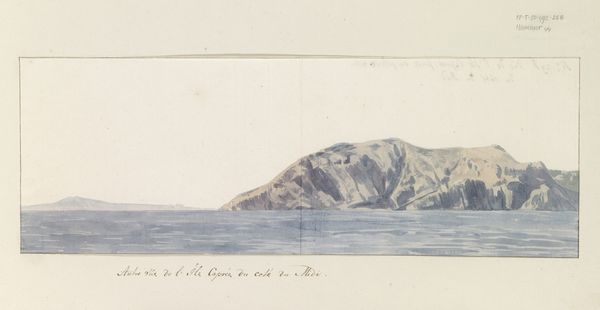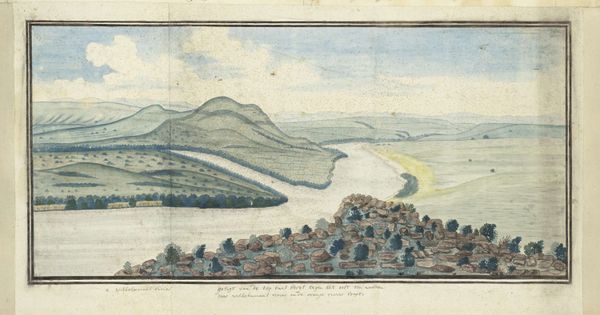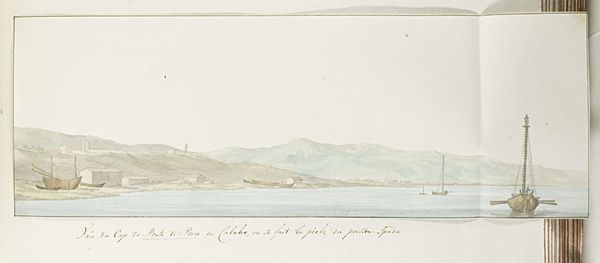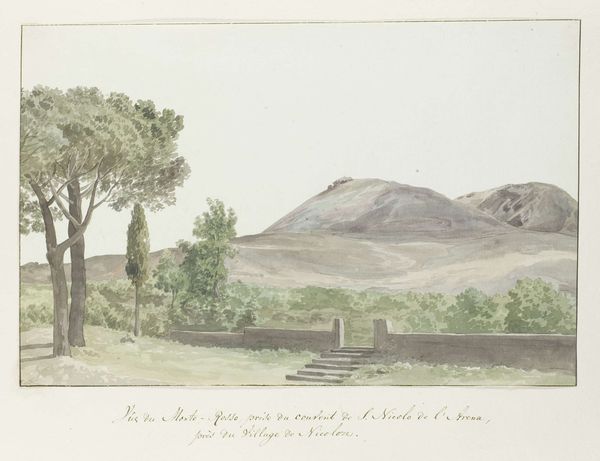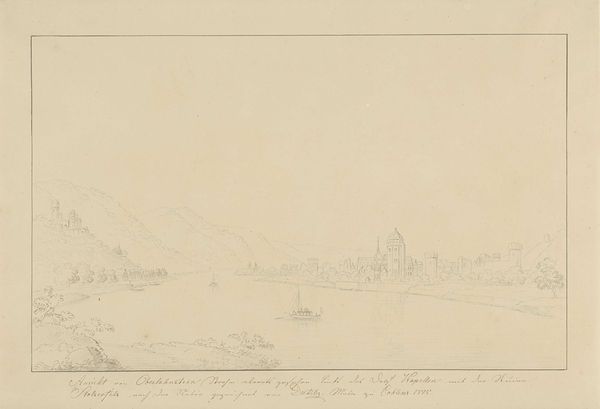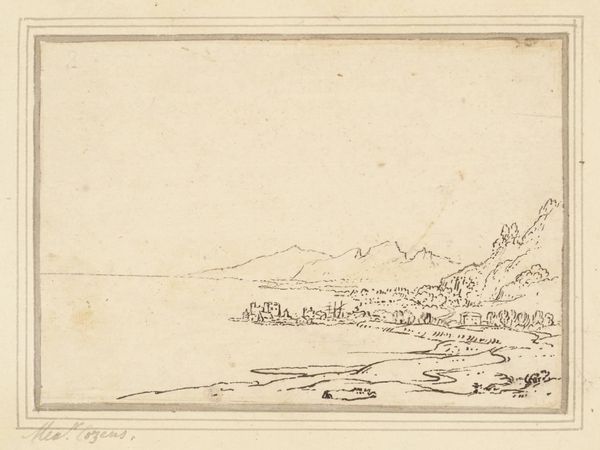
watercolor
#
neoclacissism
#
landscape
#
etching
#
watercolor
#
15_18th-century
Dimensions: height 204 mm, width 308 mm
Copyright: Rijks Museum: Open Domain
This is a view of the salt pans of Trapani, made by Louis Ducros, using watercolor and graphite on paper. Ducros was active in the late 18th century, a time when watercolors were becoming increasingly popular for landscape painting. The salt pans themselves are fascinating. They are shallow, artificial ponds designed to evaporate seawater, leaving behind salt. The process requires human labor, as workers must manage the flow of water and harvest the salt crystals. The geometric shapes of the pans contrast with the natural forms of the distant mountain, Mount Erice. This contrast reflects the tension between human intervention and the natural world, a theme common in landscape art of the time. Ducros' choice of watercolor, with its delicate washes and subtle gradations, is well-suited to capturing the shimmering light on the water and the subtle hues of the salt. Consider the sheer amount of work of the salt mining, against the delicate balance of materials to create this painting. This reminds us that all art making is a form of labor.
Comments
No comments
Be the first to comment and join the conversation on the ultimate creative platform.
